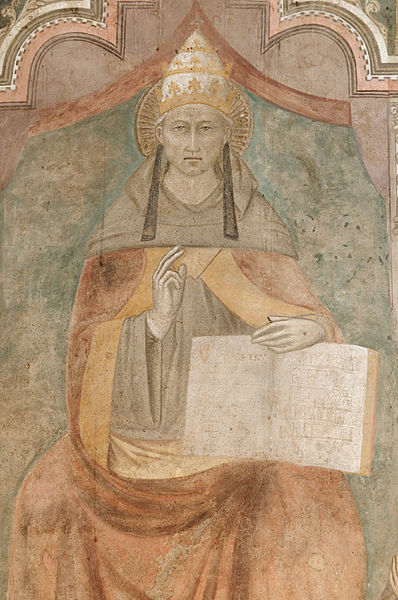With the upcoming inauguration of the President of the United States, much ado is being made

Image by Wonderlane, http://www.flickr.com/photos/wonderlane/, http://creativecommons.org/licenses/by/2.0/deed.en
about the Bibles that will be used for the cermonies. According to an article from ABC News, Obama will be using three different Bibles. For a first, private ceremony, the day before the public inauguration, he’ll use the Robinson family Bible, which has been in the First Lady’s family since 1958. During the public celebration, he’ll swear his oath of office on two Bibles: the one used by Lincoln in 1861 and Martin Luther King’s personal travel Bible. How exactly a person can swear on two Bibles at once is a mystery.
Presidential Oaths on the Bible
George Washington was the first President to swear his oath of office on the Bible. The oath was administered by Robert Livingston, the Chancellor and Grand Master of Masons of the State of New York. It was sworn on a Bible used for Masonic ceremonies at the St. John’s Lodge in New York City. (Oath-taking is a big part of freemasonry. You can read Charles Finney’s condemnation of it here.) This Bible was again used for swearing in Harding, Eisenhower, Carter and George H.W. Bush. It was supposed to be used in 2001 for George W. Bush, but was not because of rain. There is no constitutional requirement that the President use a Bible to swear in, but it is a tradition from the founding. Most interesting is the case of President Franklin Pierce, who “affirmed,” and did not swear his oath of office on a law book, not a Bible. He was a reportedly devout Episcopalian and some sects within the Episcopalian camp objected to oath-taking. So the Constitution built in an option for those who objected to oaths, that they could solemnly “affirm” a commitment rather than swearing an oath.
Objections to Oaths on the Bible
In Matthew 5:34-37, Jesus teaches:
But I say to you, Do not take an oath at all, either by heaven, for it is the throne of God,
35 or by the earth, for it is his footstool, or by Jerusalem, for it is the city of the great King.
36 And do not take an oath by your head, for you cannot make one hair white or black.
37 Let what you say be simply ‘Yes’ or ‘No’; anything more than this comes from evil.
(Mat 5:34-37 ESV)
And then in James 5:12, we read: “But above all, my brothers, do not swear, either by heaven or by earth or by any other oath, but let your “yes” be yes and your “no” be no, so that you may not fall under condemnation. (Jam 5:12 ESV)
On the basis of these two scripture passages, several Christian groups have objected to oath-taking, as against the teaching of Jesus and the Apostles. Notably, Mennonites and Quakers have objected to oath-taking on these grounds. The problem, suggested by both of these passages, is that oath-taking seems to imply a double standard for truth telling, even to hint that under regular circumstances one is not obliged to faithfully tell the truth.
In fact, in Leo XIII’s condemnation of Freemasonry, which forbids Catholics from becoming Masons, he highlights the objectionable oaths of Masons:
“Candidates are generally commanded to promise – nay, with a special oath, to swear – that they will never, to any person, at any time or in any way, make known the members, the passes, or the subjects discussed. Thus, with a fraudulent external appearance, and with a style of simulation which is always the same, the Freemasons, like the Manichees of old, strive, as far as possible, to conceal themselves, and to admit no witnesses but their own members.” (Humanum Genus, 1884)
Now, what do Catholics have to say about oaths, especially oaths on Bibles?
A Catholic View of Oath-Taking
Catholics have a lot of oaths. Married persons take vows at their weddings, religious persons profess vows in special ceremonies, priests take vows at their ordination ceremonies. In addition, Pope Pius X commanded that all priests take the “Oath Against Modernism.” Catholic theology teachers often take the “Oath of Fidelity” to promise to hold to Catholic teaching–interestingly, the Oath includes placing one’s hands on the Book of the Gospels. The Catholic Encyclopedia takes a rather sanguine view of oath-taking and describes its various forms.
Thomas Aquinas has quite a lot to say about oaths (ST II-II, q. 89). He teaches that is “in itself lawful and commendable.” In specific, he cites, Hebrews 6:16-17, “For people swear by something greater than themselves, and in all their disputes an oath is final for confirmation. So when God desired to show more convincingly to the heirs of the promise the unchangeable character of his purpose, he guaranteed it with an oath” (Heb 6:16-17 ESV). From this example, we see a New Testament author mentioning oaths as a normal part of life, without condemnation. Also, the author to the Hebrews insists that God himself makes an oath, swearing by himself (see earlier in Hebrews 6 for context). Now, to the problem of the Bible passages I listed above (Matt 5:33-37 and James 5:12), Thomas quotes Jerome and Augustine:
Reply to Objection 1.Jerome, commenting on Matthew 5:34, says: “Observe that our Saviour forbade us to swear, not by God, but by heaven and earth. For it is known that the Jews have this most evil custom of swearing by the elements.” Yet this answer does not suffice, because James adds, “nor by any other oath.” Wherefore we must reply that, as Augustine states (De Mendacio xv), “when the Apostle employs an oath in his epistles, he shows how we are to understand the saying, ‘I say to you, not to swear at all’; lest, to wit, swearing lead us to swear easily and from swearing easily, we contract the habit, and, from swearing habitually, we fall into perjury. Hence we find that he swore only when writing, because thought brings caution and avoids hasty words.” (Summa Theologica, II-II, q. 89, a. 2)
Augustine’s argument is rather weak. He argues that Scripture forbids something just to help us avoid the habit of it. I hope he wouldn’t say the same thing about murder or adultery! The Catechism of the Catholic Church does a better job explaining:
2154 Following St. Paul,83 The tradition of the Church has understood Jesus’ words as not excluding oaths made for grave and right reasons (for example, in court). “An oath, that is the invocation of the divine name as a witness to truth, cannot be taken unless in truth, in judgment, and in justice.”84
The citations in there are to 2 Cor 1:23, “But I call God to witness against me– it was to spare you that I refrained from coming again to Corinth” (2Co 1:23 ESV), where Paul actually takes an oath in writing; and to Galatians 1:20, “(In what I am writing to you, before God, I do not lie!)” (Gal 1:20 ESV), where the same thing happens. The last citation is to the Code of Canon Law 1198, which has lots of rules concerning oaths. For example, an oath becomes non-binding if the thing sworn becomes evil.
So it seems, from a Catholic perspective, that oaths can only be sworn by God (e.g., “so help me God”) and can only be done for serious reasons. Oaths should not be taken lightly. Swearing an oath on the Gospels is part of an official Catholic ritual, so swearing oaths on Bibles does not seem objectionable. One must constantly keep in mind the gravity of the oath and one’s obligation to fulfill it.


